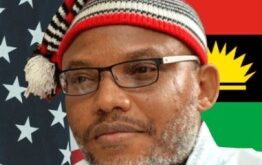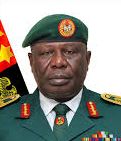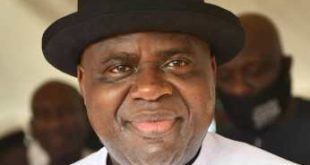By Young Erhiurhoro, Warri
Urhobo, as one of the recognized ethnic nationalities in Delta State and Nigeria, even though it’s today grouped under minorities, at present, has 24 traditionally and politically recognized kingdoms or clans.
Professor Onigu Otite, an Urhobo internationally acclaimed sociologist defined a kingdom in his book titled, ‘On the Path of Progress. (A Study of Rural Immigrants and Development in Nigeria), as a conglomerate or combination of different communities, villages, camps and families which are linked together, either by blood or marriage and they are ruled by a king or queen.
In the same way, Dr. Barth F. defined clan in his book, ‘Ethnic Group And Boundaries’ (1969), as a group of people related by blood or marriage.
From the above academic postulations, we can confidently infer that Urhobo is an ethnic group and not a kingdom per se. Urhobo is not a kingdom, that is why it can’t be ruled by one supreme monarch.
Another reason why Urhobo can’t be ruled by one monarch is because Urhobo is a heterogeneous society, meaning it has many kingdoms under it. This is quite different from the Itsekiri and the Benin kingdoms.
In this case, the Itsekiri or Benin kingdom can be referred to as an ethnic group and at the same time a kingdom because it has only one supreme clan head. Though they may have subordinate monarchs that assist the supreme heads in their day to day traditional administration of the various communities but such subordinate monarchs must pay allegiance and honour to the supreme heads.
But in Urhobo case, it’s not the same traditional settings or cultural arrangements with those of Itsekiri and Benin kingdoms.
Another natural and remarkable feature or characteristic of the Urhobo people is that, they are patrilineal in nature. African society is heavily male-dominated unlike European and American societies where women are sometimes considered for important political and traditional positions such as women presidents, women governors, community chairmen, women traditional rulers etc.
This can’t be done or accepted by Urhobo people as our culture and traditions are not in support of such practices. This is why the 24 kingdoms in Urhobo land operate patrilineal monarchy or patriarchy. There is virtually no kingdom in the entire Urhobo land that is being ruled by a woman as the traditional head. In fact, patri-lineage runs in the veins of most Africans.
However, the topic of this discourse came as a question because of what some Urhobo indigenes posted on social media networks some time ago. As a writer, especially on culture and traditions of our peoples and lands, I have written much on the topic of kingdoms and clans in Urhobo land from other perspectives than this very one. In fact, from the research findings of Urhobo erudite scholars like Professors Michael Young Nabofa, Onigu Otite, Obaro Ikimi, Peter Ekeh etc on the history, traditions and laws of the Urhobo people, there is no such tradition or native law that limits Urhobo nationality to only 24 kingdoms.
Secondly, the Urhobo nation is in Delta State of Nigeria. Under the chieftaincy and traditional laws of the Delta State government, there is virtually no law, edict, order or policy that also limits the Urhobo people to have only 24 kingdoms as at now. Whether such laws would be promulgated later to restrict the Urhobo people to only 24 kingdoms is a prophecy in oblivion or a total mirage.
In another development, according to theories and studies in Sociology, Anthropology, Philosophy and Religion, God didn’t create human beings in heaven or on earth and decided to drop them in one particular ethnic group, kingdom or community. Please, read the creation story in the Bible book of Genesis 1 vs 27 & 28. Most ethnic groups, kingdoms and communities in Africa and every other continent in the world are founded as a result of migrations (immigrations and emigrations) of people from one place to another in search of food, comfort and peace. The process of searching for food, comfort and peace, however made our forebears to engage in internal wars with their parents, siblings, in-laws or other invaders or inter-tribal wars with those they met either on the way to their new home or right in the new land.
For instance, from our oral history, all the kingdoms in Urhobo land migrated from the great Benin kingdom mainly during the reigns of the Ogiso dynasty to establish the various communities which were later grouped to form the different kingdoms across Urhobo land.
To be more specific on the stories of migrations in Urhobo land, Evwreni folk history had it that Ephron (Effurun) first settled in a land close to where Evwreni is presently occupying and they shared common boundaries with Eghwu during that time. But today, they had moved from that abode to occupy their present home, may be as a result of internal or inter-tribal wars. In order to remember that landmark event in Evwreni, there is a large farmland called Ephron in Evwreni today which lies on the boundary line of Eghwu.
Secondly, we have Kokori and Ugono as names of farmlands in Unenurhie community, also in Evwreni kingdom. The Unenurhie folk history had it that those two farmlands named after those communities in present day Agbon and Orogun kingdoms first inhabited those places, until they decided to move to their present abodes. Even till today, there are pieces of broken earthen wares in these farmlands to confirm the reality of the folk stories which I have seen with my eyes, even as a child in those days when I accompanied my mother to farm in those lands.
From the foregoing, we can now understand why Urhobo is not restricted to only 24 kingdoms. To put the record straight, the Oghwoghwa Group according to Urhobo oral history had four children, which were Ogor, Ughelli, Agbarha and Orogun. By the above definitions of kingdoms and clans, these four siblings of Oghwoghwa are supposed to be in one kingdom because they were related by blood. But today, they were split into four different kingdoms with each headed by a king. This came about as a result of migrations of these children from one place to another.
To further buttress the above point, do we now forget the Mosogar saga of 2000, of how they broke away from the old Oghara kingdom to form their own kingdom? Yes, they had every right to do so if they can prove it right in both our traditional and political laws. What about Avwraka (Abraka) kingdom that split into two different kingdoms? Today, they are recognized as such by the Urhobo tradition and the laws of Delta State. And we still have many more to count.
Also, in recent times, some communities in kingdoms across the Urhobo nation started agitating to break away from their parent kingdoms to establish new kingdoms of their own. For instance, Orhuwherun and three other communities in Ughievwen kingdom attempted to break away to form their own kingdoms but the matter landed in a court of law for English adjudication.
Ohoror community in Uwheru kingdom also attempted to break away some time ago to form their own kingdom until the wise elders of the kingdom settled the issue peacefully and amicably. Again, Unenurhie community in Evwreni kingdom have been shouting on top of their voices on issues of oppression and injustice by their parent kingdom as reasons to break away and establish their own kingdom.
In all these cases of break away, the parent kingdoms or their traditional heads are to be blamed for so many reasons. Let’s assume the Delta State government recognized these communities as kingdoms by virtue of the government gazettes as they were agitating, will the Urhobo people reject them from being kingdoms? The answer is capital ‘No’. Unfortunately, two of the insurmountable challenges to these agitators to achieve their dreams are the political will and the constitutional tool to convince and bend the state government to their bidding, such as the case of Mosogar and Oghara, between the two elephants, Chief Ighoyota Amori and Chief James Ibori, in the corridors of power at Asaba at that time.
To conclude this discourse, we should note that before now, Urhobo, as an ethnic nation did not have up to 24 kingdoms, but the kingdoms continued to proliferate as a result of one thing or the other especially on issues bordering on arrogance, oppression, injustice, inequality, greediness, jealousy etc on the part of the kings, king-makers, elders and the subjects.
Therefore, to tame and to put under control the surge of break away or the proliferation of kingdoms in Urhobo land, our traditional rulers must be ready to discharge their traditional duties based on equality, fairness and true justice to all the communities making up such a kingdom. They must carry along their subordinate monarchs, king makers, elders and other leaders of the kingdom and try as much as possible to spread across to all their subjects whatever success or benefits that accrues to the kingdom. In this way, the Urhobo nation can end up having only 24 kingdoms as insinuated or envisaged by such so-called Urhobo idealists or theorists.
But on the other hand, there will continue to be agitations and counter agitations to create and establish more kingdoms from the old ones in Urhobo land if our traditional rulers play the game of ruler-ship in directions different from the laid down rules and regulations of the ancient Urhobo traditional institutions. Such aggrieved subjects would only look for the political will and the constitutional tool, as Chief Ighoyota Amori did, to get their new kingdoms approved by the state government since there is no constitutional law or traditional edict that restricts Urhobo nation to only 24 kingdoms. A word is enough for the wise!
Young Erhiurhoro is a reporter and a member of the Urhobo Historical Society
 PH Mundial – Port Harcourt Online Newspaper News Across The Region
PH Mundial – Port Harcourt Online Newspaper News Across The Region




